Library of the Week – 24th January 2022: We are very excited to share that our first Library of the Week is….The Gerald Coke Handel Collection at the Foundling Museum! Katharine Hogg, Librarian of the Gerald Coke Handel Collection, shares with us this amazing piece about the library, its collections, the history of the museum and so much more.
The Gerald Coke Handel Collection at the Foundling Museum comprises over 14,000 items from the eighteenth century to the present, and is a major research resource for the study of Handel and his contemporaries. Handel was a major benefactor of the Foundling Hospital, a home for children founded in 1739 by Thomas Coram, which counted William Hogarth among its supporters. The Museum tells the story of the Hospital and also displays an art collection donated by artists from the eighteenth century to the present day. Handel gave benefit concerts for the Hospital, paid for the first organ in the Hospital Chapel, and composed the Foundling Hospital Anthem especially for his first fundraising concert there. His Foundling Hospital performances of Messiah brought his oratorio from relative obscurity to the central place it now occupies in British musical performances.
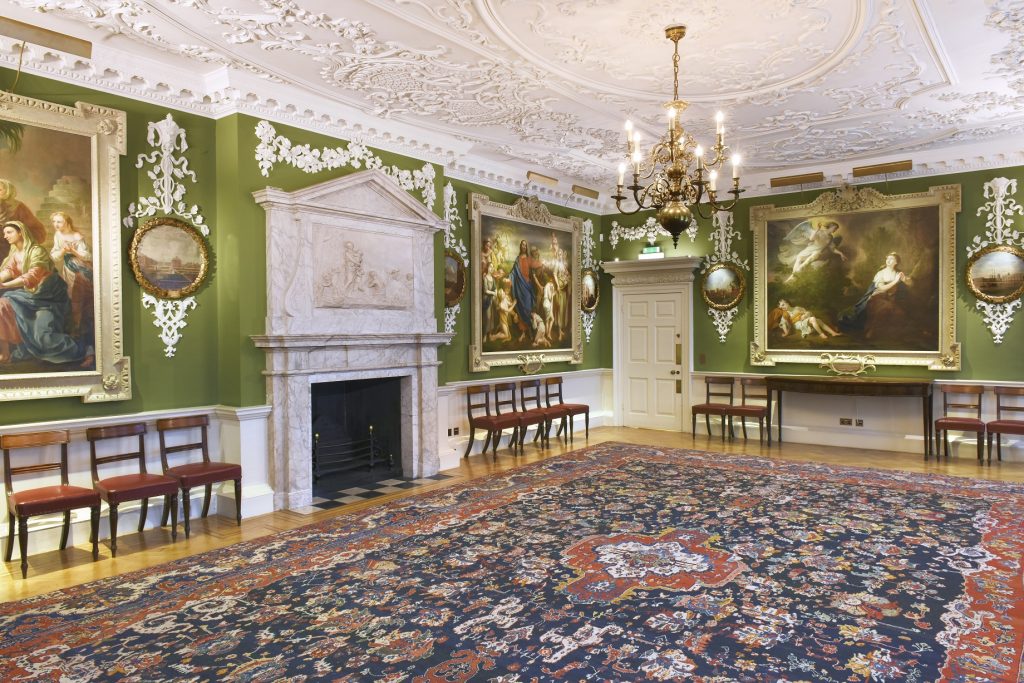
The Handel Collection includes manuscript and printed music and documents, books, journals, libretti, sound recordings, artworks and artefacts, and an important collection of performance ephemera relating to Handel and his circle, and to music printing and publishing in London in the eighteenth century. Handel’s singers, patrons, friends and working environments are well represented, making the collection a rich resource for eighteenth-century musical studies. There are periodicals and collected editions, together with modern scores and literature, and the large collection of ephemera comprises concert tickets, playbills, newspaper cuttings, programmes and advertisements from the eighteenth century to the present day.
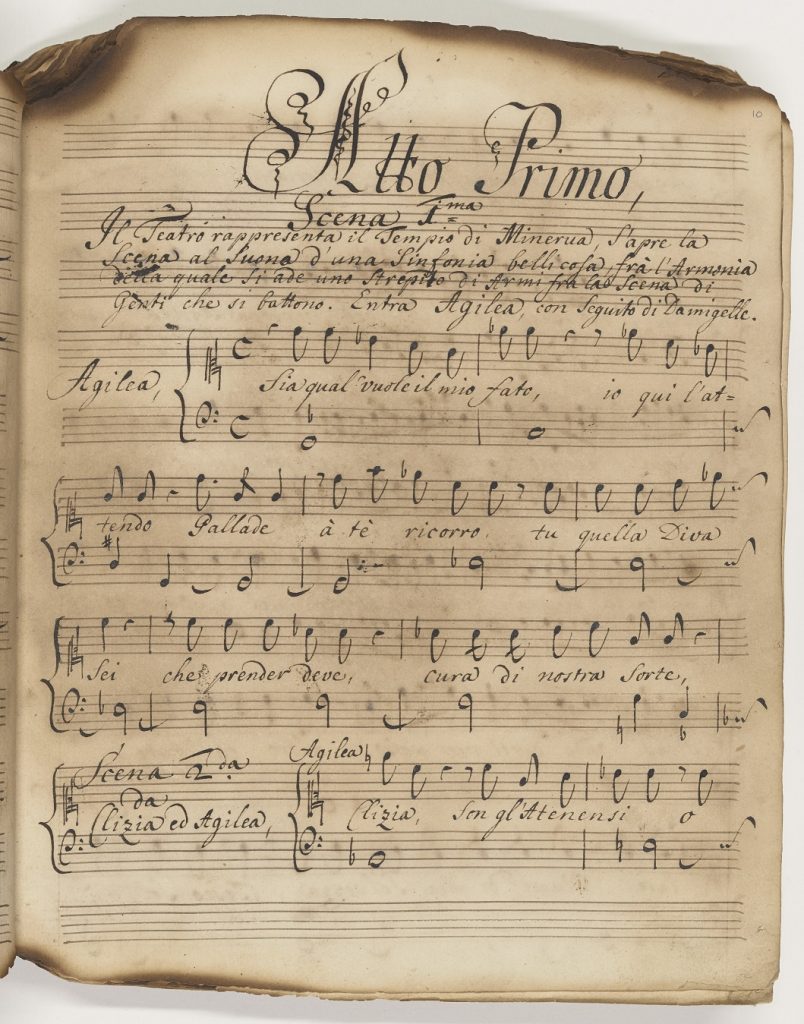
Manuscripts include autograph letters from Handel, his librettist Charles Jennens, and others, as well as the earliest surviving score of his opera Teseo and numerous contemporary manuscript scores, including a significant collection formerly belonging to the Earl of Shaftesbury. There are many items relating to the earliest performances of Handel’s most famous oratorio, Messiah, including wordbooks for the first performance and the first published score of songs from Messiah. A highlight of the collection is Handel’s autograph will; written in 1750, it was later supplemented by four codicils, including one dated 4 August 1757 which includes his bequest to the Foundling Hospital of ‘a fair copy of the Score and all Parts of my oratorio called The Messiah’; this score and the 28 performance parts are now in the library. A previously unpublished collection of letters from Jennens to the classical scholar Edward Holdsworth has now been fully transcribed in the online catalogue; these document Holdsworth’s travels across Europe on the Grand Tour, as well as including many references to Handel performances. There is also an unpublished manuscript account by the Frenchman Pierre Fougeroux de Blaveau, describing his travels around England in 1728, which includes interesting details of everyday life and habits seen through the eyes of a foreign visitor. Discoveries made among the manuscripts in the Collection, after it was placed at the museum, include previously unknown works by Vivaldi, as well as the lost opening to a work by William Boyce, Master of the King’s Music.
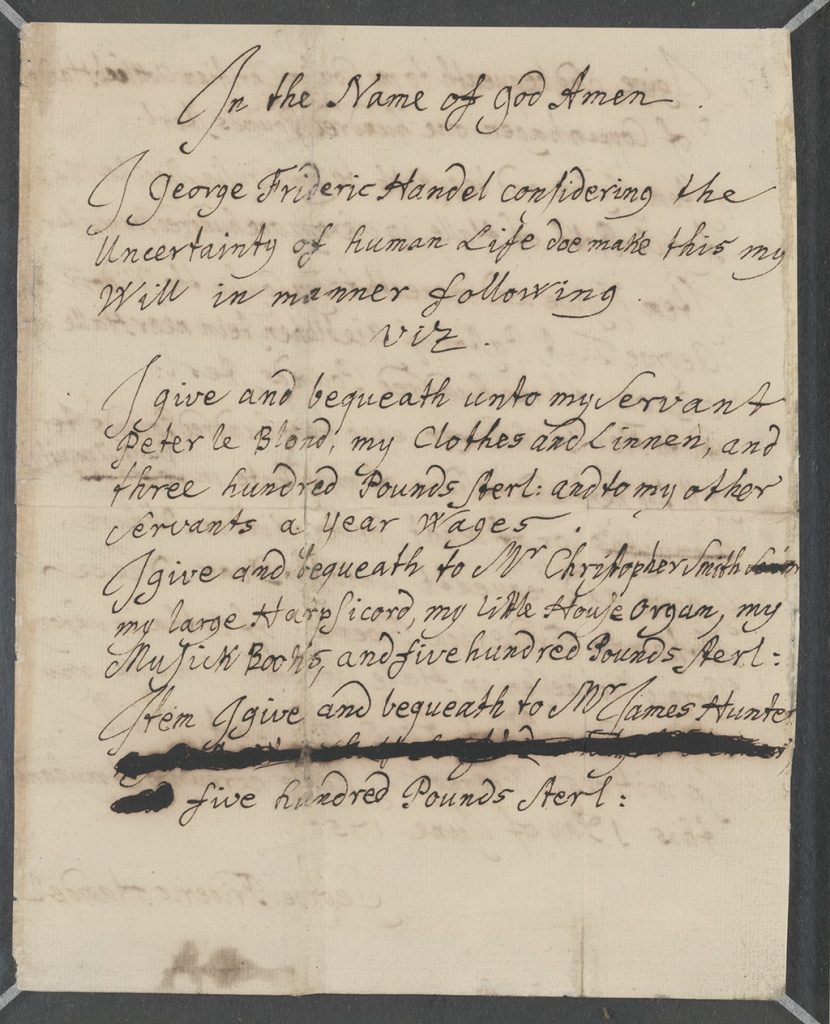
Major art works include oil paintings of Handel, Charles Jennens, the singers Richard Leveridge, Anna Maria Strada and John Beard, and Zoffany’s portrait of John Christopher Smith the younger. There are hundreds of prints and engravings of contemporary composers and performers, including watercolours by Rowlandson, as well as ceramic and bronze busts of Handel and a terracotta modello by Roubiliac for the monument to the composer in Westminster Abbey. Smaller items include a porcelain model of the singer Kitty Clive and numerous medals, tokens and memorabilia issued for various festivals from the eighteenth to the twentieth centuries. Digital images of all the artworks and manuscripts, and much of the ephemera, are available in the online catalogue, and the pandemic lockdown has given the library staff the opportunity to add hundreds of additional images.
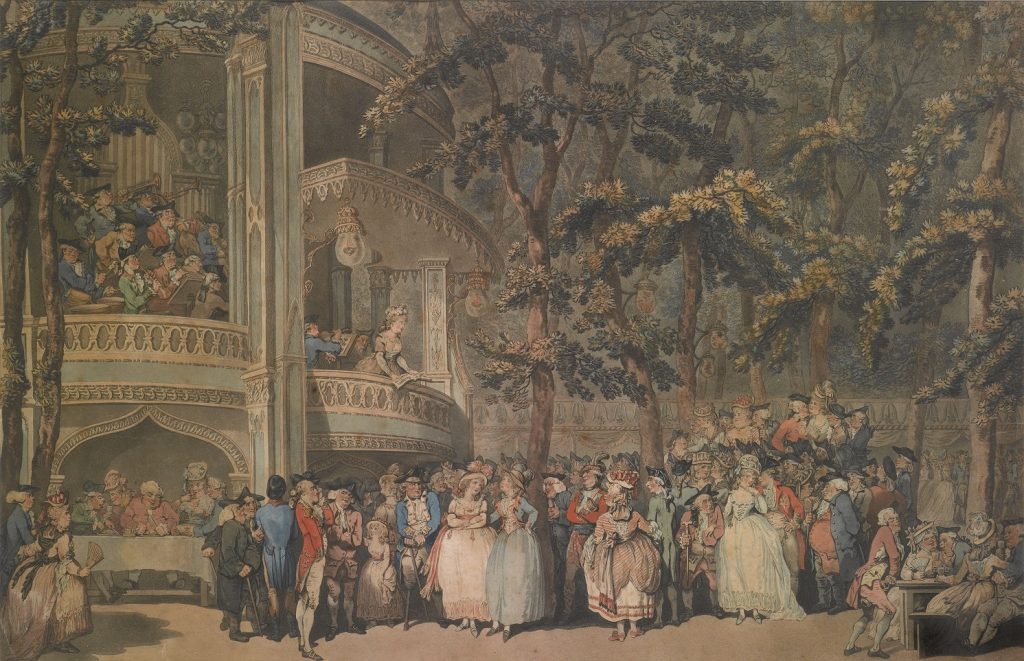
Gerald Coke was a meticulous collector and regarded every issue of a printed volume as distinct, allowing scholars to discover a wealth of detail about printing and publishing of music in the eighteenth century from studying variant copies. Thus the collection has multiple issues of some editions, distinguished by perhaps as little as a single re-engraved plate, as well as copies annotated by significant former owners. There are many original book bindings among the volumes, from finely tooled covers to makeshift wrappers, and a wonderful collection of marbled boards on the bound volumes.
Modern items in the collection include around a thousand sound recordings, mostly from the collection of the Handel scholar Anthony Hicks, as well as current journals, books and music scores. Accessions in the past year include such diverse items as a trade card for an eighteenth-century music dealer, concert programmes from early twentieth-century Germany and early eighteenth-century manuscripts of opera songs.
Gerald Coke (1907-1990) was a businessman who created his collection over sixty years. He also collected porcelain decorated in the studio of James Giles, and this collection is now in the Museum of Royal Worcester. Coke’s Handel collection was bequeathed to the State in lieu of tax by his widow in 1995, and formally allocated to the Foundling Museum in 2008. As well as the Collection itself, the bequest included an endowment which allows for further purchases or modern and antiquarian materials, and the Collection continues to grow. A reading room provides access to scholars, students and the public for research.
The online catalogue includes detailed lists of contents of anthologies as well as digitised images of most of the manuscripts, taken from microfilms, and digitised images of the artworks, playbills and some other material. As about half of the regular users of the Collection live overseas, we have tried to include as much detail as possible in the records. Most of our concert programmes are included on the Concert Programmes Project database and most of our manuscripts are described in further detail with music incipits and scoring details on the international RISM database of music manuscripts (Répertoire International des Sources Musicales). Relevant items are also being added to the English Short Title Catalogue, including apparently unique copies of eighteenth-century libretti.
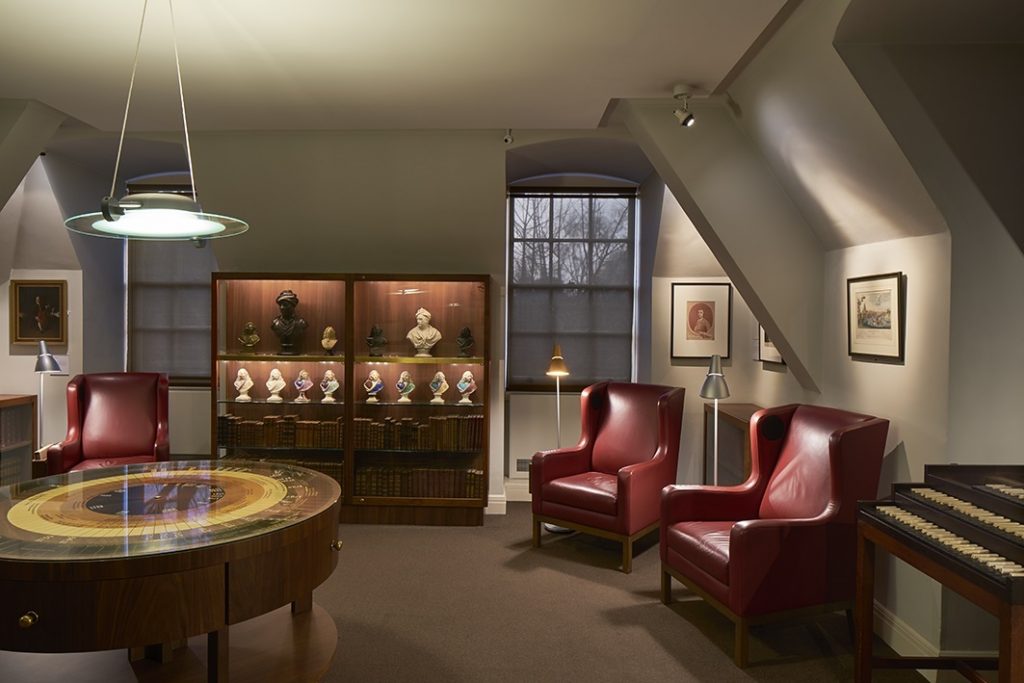
The Handel Gallery in the museum is open to the public during normal museum hours and displays a range of material from the Collection, as well as providing popular ‘musical chairs’ where visitors can sit in comfort and listen to hours of Handel’s music. There are changing displays in the gallery, curated by the Collection staff, who also curate the museum’s main exhibition every few years. Past exhibitions have included Two last nights! Showbusiness in Georgian Britain; Handel the Philanthropist and By George! Handel’s music for Royal Occasions. The current display, curated by Lizzy Buckle, our collaborative PhD student, is Friends with Benefits: musical networking in Georgian Britain, which draws on a range of sources including fire insurance records, payment lists, street directories and concert programmes to trace the complex networks of musicians and ‘who knew who’ in eighteenth-century London.
The Collection staff organise and host the Annual Study Day on Music in 18th-century Britain, which is normally held at the end of November; it has been a virtual event for the past two years, and the papers presented are still available on the museum’s YouTube account – the 2021 papers are available here.
The staff also give papers at national and international conferences, as well as at the museum, and work with higher education institutions to support students of musicology, library and archive studies, offering seminars, work placements and at present a collaborative PhD with Royal Holloway.
The Gerald Coke Handel Collection reading room is normally open Wednesday – Friday for research by appointment. For all enquiries call +44 (0)20 7841 3606 or email handel@foundlingmuseum.org.uk.
Visitors can also get in touch to request general or bespoke tours of the museum and/or the Handel Collection, and there are frequent concerts, talks and other events in the museum inspired by the museum’s stories of art, social history and music. For further details see the website: www.foundlingmuseum.org.uk
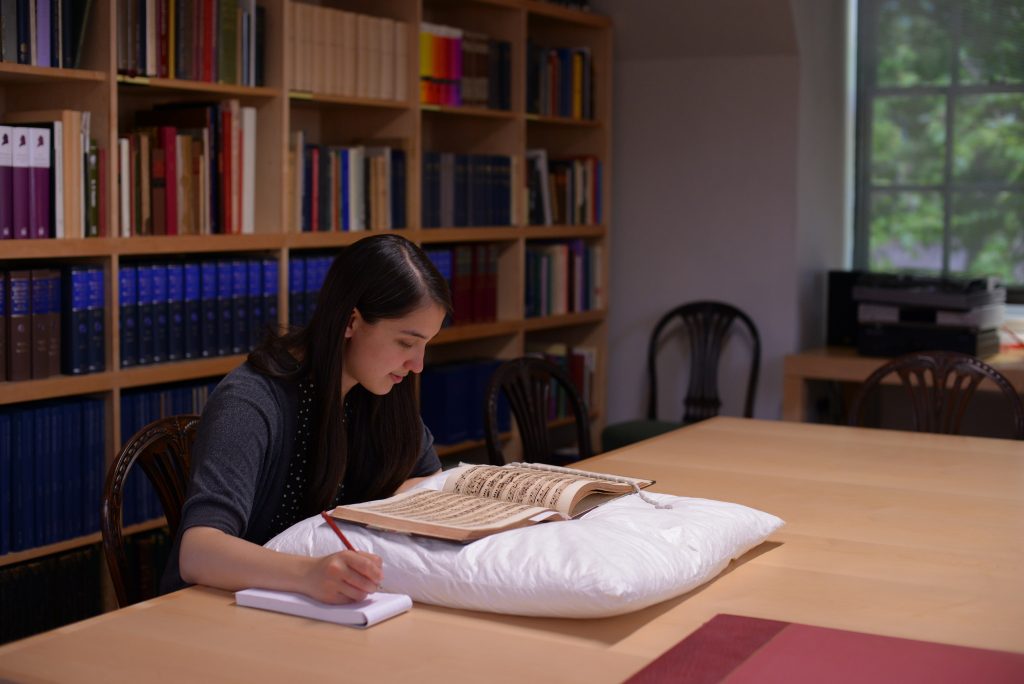
Katharine Hogg
Librarian
(This post was previously published in 2020 but has been updated and revised for 2022 as part of our Library of the Week Promotion.)
You can explore the library’s collections on Discover and find contact details on their Discover information page.

